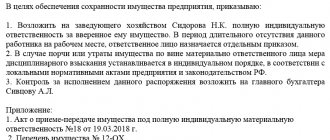Deadlines for appeal
Ten days are given to file a complaint against the decision to bring to administrative liability (Article 30.3 of the Code of Administrative Offenses of the Russian Federation). The only exception is for decisions in cases of violations during elections: in these cases, only five days are given to appeal.
The period is calculated from the moment of delivery or receipt of a copy of the decision. If you miss the deadline, your complaint will be rejected. However, you can try to restore the deadline, but to do this you will need to provide evidence that the deadline was missed for valid reasons. If, for example, the court sent you a decision by mail, and you did not appear at the post office on time, in the absence of other grounds, the deadline for filing a complaint will not be restored to you.
The deadline for filing subsequent complaints, including after the decision to bring administrative liability into force, is the same - ten days. The only exception is for filing cassation complaints in the arbitration process - there the period is two months.
Do you need help appealing a decision on an administrative violation? I, lawyer Vladimir Chikin, will tell you about the prospects of the case, draw up the necessary documents and represent your interests in court. Write to or call +!
Judicial practice under Article 30.5 of the Code of Administrative Offenses of the Russian Federation:
Supreme Court decision: Resolution No. 5-AD17-73 of 10/02/2017 Judicial Collegium for Administrative Cases, supervision
Decision of the Supreme Court: Decision N 66-AAD16-1 of 05/19/2016 Judicial Collegium for Administrative Cases, supervision
Decision of the Supreme Court: Determination No. 4-AAD17-2 of 08/09/2017 Judicial Collegium for Administrative Cases, supervision
Supreme Court decision: Resolution No. 18-AD17-9 of 04/03/2017 Judicial Collegium for Administrative Cases, supervision
Decision of the Supreme Court: Decision No. 38-AAD16-3 of September 29, 2016 Judicial Collegium for Administrative Cases, supervision
Decision of the Supreme Court: Resolution No. 67-AD17-6 of May 15, 2017 Judicial Collegium for Administrative Cases, supervision
Decision of the Supreme Court: Decision No. 5-AAD17-1 of 03/02/2017 Judicial Collegium for Administrative Cases, supervision
Supreme Court decision: Resolution No. 77-AD16-4 of 08/01/2016 Judicial Collegium for Administrative Cases, supervision
Decision of the Supreme Court: Decision No. 6-AAD17-1 of 02/16/2017 Judicial Collegium for Administrative Cases, supervision
Decision of the Supreme Court: Resolution N 77-AD17-2 of 05/04/2017 Judicial Collegium for Administrative Cases, supervision
- First
- «
- Last
Comments ()
Write a comment
Where should I appeal first?
If the decision to impose administrative liability is made by a court, the complaint will be considered by a higher court.
If the decision was made by an official (for example, a police officer or some government inspector), the complaint may be considered either by a higher official or by the district court where the case was heard.
The person filing the complaint chooses who to contact. If you complain to both the court and a higher authority at the same time, only the court will consider the complaint. If you complain only to a higher authority, then after a decision on the complaint is made, you can also complain to the court (more on this below).
If the decision was made by a collegial body (for example, a commission on juvenile affairs), the complaint is considered by the district court at the location of the collegial body.
If a person is brought to justice not under an article of the Code of the Russian Federation on Administrative Offences, but under a regional law on administrative offences, and the decision is made by a specially created regional body, the complaint is considered by the district court at the place where the case was considered.
It is necessary to clarify what it means to “complain to the district court at the place where the case is being heard.” The place of consideration is not the location of the administrative body and its official who issued the appealed decision. The place of consideration is determined based on the place where the offense was committed. And it is always indicated in the appealed decision.
What if the offense concerns economic activity?
If a legal entity or individual entrepreneur has been brought to administrative responsibility for an offense related to the implementation of entrepreneurial or other economic activities, they should file a complaint not with the district court or with a higher authority, but with the arbitration court. The rules for considering such complaints are established not by the Code of the Russian Federation on Administrative Offenses, but by the Arbitration Procedural Code of the Russian Federation.
If, as a result of an inspection by a supervisory authority, both a legal entity and its official (most often the manager) were brought to administrative liability, then the legal entity will complain to the arbitration court, and the official to the district court.
It is important to consider that not every offense for which a legal entity or individual entrepreneur is held accountable is economic. For example, violation of sanitary standards, environmental protection legislation, fire safety standards - all this is not related to economic activity. Therefore, complaints against decisions on such offenses will be filed by legal entities and individual entrepreneurs to the district court (or, if possible, to a higher administrative body).
In addition, if the decision to prosecute was made by the district court, there is no doubt at all about where to complain. This decision, even if it may seem related to economic activity, will only be appealed to a higher court of general jurisdiction.
There can also be no ambiguity in the situation if the decision to impose administrative liability was made by the arbitration court itself. It will be appealed to a higher arbitration court of appeal.
What to do if the complaint is denied?
The entire series of instances when appealing decisions on administrative offenses and the moment these decisions enter into force differ depending on who made this decision and what path of defense the person brought to justice chose. Below we will look at all possible sequences for filing complaints.
If the decision to bring to administrative liability was made by an official:
Appeal scheme No. 1:
Resolution of an official – Complaint to a higher official – Decision of an official on a complaint – Complaint to a district court – Court decision on a complaint – Complaint to a higher court – Decision of a higher court on a complaint (from this moment the decision comes into force) – Complaint to the cassation court general jurisdiction (KOYU) – Resolution of the KOJ on the complaint – Complaint to the Supreme Court of the Russian Federation (RF Supreme Court) – Resolution of the RF Supreme Court
Appeal scheme No. 2:
Resolution of an official – Complaint to a district court – Court decision on a complaint – Complaint to a higher court – Decision of a higher court on a complaint (from this moment the decision comes into force) – Complaint to a cassation court of general jurisdiction (COJ) – KOJ resolution on a complaint – Complaint to the RF Armed Forces – Resolution of the RF Armed Forces
If the decision to impose administrative liability was made by a collegial body (including a body created in accordance with regional law):
Resolution of a collegial body – Complaint to a district court – Court decision on a complaint – Complaint to a higher court – Decision of a higher court on a complaint (from this moment the decision comes into force) – Complaint to a cassation court of general jurisdiction (COJ) – KOJ decision on a complaint – Complaint to the RF Armed Forces – Resolution of the RF Armed Forces
If the decision to impose administrative liability is made by the court:
Court decision – Complaint to a higher court – Court decision on the complaint (from this moment the decision comes into force) – Complaint to the General Jurisdiction Court of Cassation (GCJ) – GCJ Resolution on the complaint – Complaint to the RF Armed Forces – RF Armed Forces Resolution
If the decision to impose administrative liability concerns economic activity and is made by an administrative body:
Resolution of an administrative body – Complaint to the arbitration court – Decision of the arbitration court – Appeal to the arbitration court of appeal – Resolution of the arbitration court of appeal (from this moment the decision comes into force) – Cassation appeal to the arbitration court of cassation – Resolution of the arbitration court of cassation – Complaint to the Supreme Court of the Russian Federation – Definition of the RF Armed Forces
If the decision to impose administrative liability was made by the arbitration court:
Decision of the arbitration court – Appeal to the arbitration court of appeal – Resolution of the arbitration court of appeal (from this moment the decision comes into force) – Cassation appeal to the arbitration court of cassation – Resolution of the arbitration court of cassation – Complaint to the RF Armed Forces – Ruling of the RF Armed Forces
The decision on bringing to administrative liability begins to be executed from the moment it enters into legal force. If you do not appeal the decision, it will come into force after the appeal period has expired (that is, ten days after you receive the decision). If you appeal, but to no avail, the resolution will come into force from the moment we indicated above, that is, after consideration of the complaint against the resolution that has not entered into force.
Thus, it is important to appeal a decision on administrative violations, at least in order to delay the deadline for its execution. But in addition to this, an appeal may reveal the absence of the event itself or the elements of the offense. In this case, the proceedings may be terminated.
It is also possible that by the time the court reveals significant procedural violations committed during prosecution, the statute of limitations will have expired. Then the court, regardless of whether an offense was actually committed or not, will only have to terminate the proceedings.
Article 30.5. Time limits for consideration of a complaint against a decision in a case of an administrative offense
Resolution of the ECHR dated 02.21.2017 27. A complaint against a decision in a case of an administrative offense could be filed within 10 days (or 15 days for some offenses) from the date of delivery or receipt of a copy of the decision (Article 30.3 of the Code of Administrative Offenses of the Russian Federation). A complaint against a decision in a case of an administrative offense is subject to consideration within ten days (or in a shorter period for some offenses) from the date of its receipt with all the materials of the case by the court, body, official authorized to consider the complaint (Article 30.5 of the Code of Administrative Offenses of the Russian Federation). The judge or higher official are not bound by the arguments of the complaint and check the case in full (Article 30.6 of the Code of Administrative Offenses of the Russian Federation).
Decision of the Disciplinary Board of the Supreme Court of the Russian Federation dated March 12, 2019 N DK19-7
According to Part 1.1 of Article 29.6 of the Code of Administrative Offenses of the Russian Federation, a case of an administrative offense is considered within two months from the date of receipt by the judge competent to consider the case, a protocol on an administrative offense and other materials of the case, and a complaint against a decision in a case of an administrative offense is subject to consideration within two months from the date of its receipt of all case materials to the court competent to consider the complaint (Part 1.1 of Article 30.5 of the Code of Administrative Offenses of the Russian Federation).
Appeal ruling of the Appeal Board of the Supreme Court of the Russian Federation dated January 22, 2019 N APL18-18D
By virtue of Part 1.1 of Article 30.5 of the Code of the Russian Federation on Administrative Offences, a complaint against a decision in a case of an administrative offense is subject to consideration within two months from the date of its receipt with all the materials of the case by the court competent to consider the complaint. In case No. 12-8/2017, by a ruling dated February 28, 2021, F. restored the deadline for appealing the decision in the case of an administrative offense, the decision on his complaint was made only on August 30, 2017, there are no objective reasons for such a long consideration of the complaint.
Resolution of the Supreme Court of the Russian Federation dated January 10, 2020 N 73-AD19-9
According to Part 1.1 of Article 30.5 of the Code of Administrative Offenses of the Russian Federation, a complaint against a decision in a case of an administrative offense is subject to consideration within two months from the date of its receipt with all the materials of the case by the court competent to consider the complaint. From the systematic interpretation of the above norms it follows that a complaint against a decision in a case of an administrative offense and (or) a decision taken in a case of an administrative offense must be accepted for consideration of the case or returned to the applicant by the judge competent to consider it.
Determination of the Constitutional Court of the Russian Federation dated October 2, 2019 N 2628-O
The provisions of Articles 1.1, 2.1, 30.2, 30.4, 30.5 and 30.6 of the Code of Administrative Offenses of the Russian Federation, contested by the applicant, establish the foundations, general provisions and principles of legislation on administrative offenses, define the concept of an administrative offense and the procedure for reviewing decisions (decisions) made based on the results of consideration of a case (complaints, protests), and therefore form the basis of the procedural mechanism for proceedings in cases of administrative offenses, and therefore generally cannot be considered as violating the constitutional rights of the applicant in the aspect specified in the complaint. Cannot be regarded as violating the constitutional rights of E.A. Guseinov and Article 5.63 of the Code of Administrative Offenses of the Russian Federation, which he disputed, since, by providing for administrative liability for violation of legislation on the organization of the provision of state and municipal services, it is thereby aimed at realizing the constitutional right of citizens to apply in person, as well as to send individual and collective appeals to government bodies and authorities local self-government (Article 33 of the Constitution of the Russian Federation).
Resolution of the Supreme Court of the Russian Federation dated April 19, 2017 N 74-AD17-6
A complaint against a decision in a case of an administrative offense is subject to consideration within ten days from the date of its receipt, along with all the materials of the case, by the authority authorized to consider the complaint (Part 1 of Article 30.5 of the Code of the Russian Federation on Administrative Offenses). In accordance with Part 1 of Article 30.9 of the Code of Administrative Offenses of the Russian Federation, a decision in a case of an administrative offense made by an official and (or) a decision of a superior official on a complaint against this decision can be appealed to the court at the place of consideration of the complaint, and then to higher court.
Decision of the Disciplinary Board of the Supreme Court of the Russian Federation dated July 27, 2018 N DK18-37
According to Part 1.1 of Article 29.6 of the Code of Administrative Offenses of the Russian Federation, a case of an administrative offense is considered within two months from the date of receipt by the judge competent to consider the case, a protocol on an administrative offense and other materials of the case, and a complaint against a decision in a case of an administrative offense is subject to consideration within two months from the date of its receipt of all case materials to the court competent to consider the complaint (Part 1.1 of Article 30.5 of the Code of Administrative Offenses of the Russian Federation).





